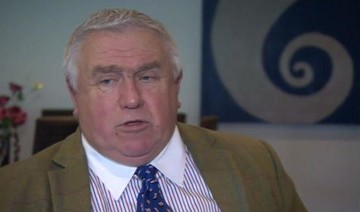MANILA: Philippine President Ferdinand Marcos Jr. will raise the territorial dispute in the South China Sea with Beijing during his visit there next week, the foreign affairs ministry said on Thursday.
The South China Sea is a strategic and resource-rich waterway claimed by China almost in its entirety, but other countries, including the Philippines, Vietnam, Malaysia and Brunei, have overlapping claims.
The Philippines has filed hundreds of diplomatic protests against China’s activity in the region in the past few years, after an international tribunal in The Hague dismissed Beijing’s sweeping claims to the waterway in 2016.
But Chinese vessels continue to be spotted in areas claimed by the Philippines, known as the West Philippine Sea, and new military facilities and airstrips have also been developed there.
Marcos will make his first state visit to Beijing from Jan. 3-5.
“The president wants a peaceful and stable situation in the West Philippine Sea and will continue to uphold our country’s sovereignty and sovereign rights during his meetings with Chinese leaders,” Department of Foreign Affairs Undersecretary Nathaniel Imperial told reporters during a press briefing at the presidential palace.
“To avoid miscalculation and miscommunication in the West Philippine Sea, both sides have agreed to sign an agreement establishing communication, direct communication, between the foreign ministries of both countries at various levels.”
The deal to establish a hotline, he added, would be signed by Foreign Affairs Secretary Enrique Manalo, who will accompany Marcos on the trip, and his Chinese counterpart, Wang Yi.
Imperial said that the Philippine president was also expected to pursue investment and trade cooperation talks, including joint oil and gas exploration, which were initiated by Marcos and Chinese President Xi Jinping on the sidelines of the Asia-Pacific Economic Cooperation summit in Bangkok in November.
The planned hotline on the South China Sea, is seen as a good development in the long-standing dispute.
“Communication is always good as long as it is meaningful,” said Bill Hayton, a fellow with the Asia-Pacific Program at Chatham House, who specializes in the South China Sea dispute.
“The problem is that China tends to regard communication as a one-way street.”
But Stephen Cutler, an international security expert and former FBI attache at the US embassy in Manila, said that establishing the direct line showed a possible shift in Beijing’s stance.
“I think it’s a way that China is realizing that they’re not doing a good job of managing relations within the international community. And the hotline is one of the ways to do that,” he told Arab News.
“What I like about the way the Philippines is approaching their relationships, unlike some past administrations, this one seems to be standing tall and standing straight. They’re not bending the knee. They’re not kowtowing to the Chinese and they’re expecting to be treated as peers.”
Marcos’ immediate predecessor, Rodrigo Duterte, adopted a Beijing-friendly approach, partly in an attempt to distance the Philippines from the US, its key defense ally and former colonial master.
During his presidential campaign, Marcos, who took office in June, committed to continuing the warm relations ushered in by Duterte, but not at the expense of sovereignty.


























